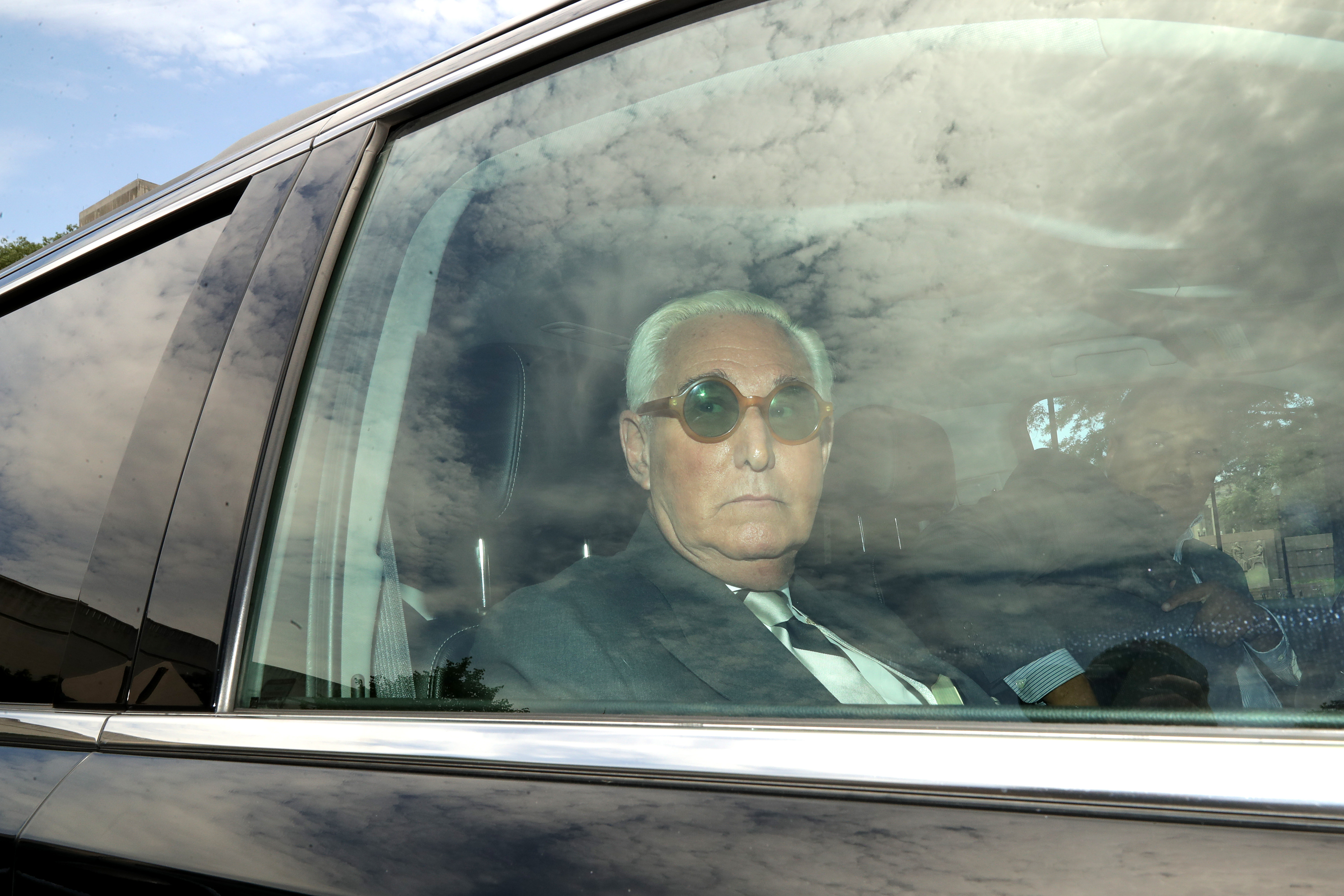A successful cover-up
We still don't know why Trump is so afraid of Putin


A free daily email with the biggest news stories of the day – and the best features from TheWeek.com
You are now subscribed
Your newsletter sign-up was successful
This is the editor’s letter in the current issue of The Week magazine.
The Sphinx has spoken. That tells you how perturbed the taciturn Robert Mueller was last week after President Trump commuted crony Roger Stone's prison sentence. Trump's gift of a "Get out of jail free" card was the crowning act in what is one of the most brazen cover-ups in American history — one that ultimately defeated Mueller, the special counsel who ran the Russia investigation. In a defensive Washington Post op-ed, Mueller complained that when a key figure like Stone "lies to investigators, it strikes at the core of the government's efforts to find the truth and hold wrongdoers accountable." A jury, Mueller noted, had convicted Stone of lying under oath about his many communications with WikiLeaks and the Russian hackers who stole Democratic Party emails. Several witnesses testified that they heard Stone directly telling an excited Trump about future email releases. Recently, in a public plea to Trump to save him from jail, Stone said, "He knows I was under enormous pressure to turn on him. But I didn't." In other words: I've got the goods on you, Mr. President. Where's my reward for not ratting?
He's been rewarded. Had Stone testified truthfully that he served as a conduit between Russian hackers and candidate Trump, Mueller's investigation might have ended very differently. Despite claims that Mueller conducted "a witch hunt," Jeffrey Toobin recently argued in The New Yorker, "his report was, ultimately, a surrender." Mueller didn't dig into Trump's finances and tax returns to find out why he's so fond of Vladimir Putin and Russia. Mueller never demanded that Trump testify, settling for written answers that the special counsel has said contained several falsehoods. That's called perjury. Sooner or later, Trump's financial records will be made public, and perhaps then the mystery will be solved. But the big reveal won't happen until after voters decide whether Trump deserves four more years.
The Week
Escape your echo chamber. Get the facts behind the news, plus analysis from multiple perspectives.

Sign up for The Week's Free Newsletters
From our morning news briefing to a weekly Good News Newsletter, get the best of The Week delivered directly to your inbox.
From our morning news briefing to a weekly Good News Newsletter, get the best of The Week delivered directly to your inbox.
A free daily email with the biggest news stories of the day – and the best features from TheWeek.com
William Falk is editor-in-chief of The Week, and has held that role since the magazine's first issue in 2001. He has previously been a reporter, columnist, and editor at the Gannett Westchester Newspapers and at Newsday, where he was part of two reporting teams that won Pulitzer Prizes.
-
 What are the best investments for beginners?
What are the best investments for beginners?The Explainer Stocks and ETFs and bonds, oh my
-
 What to know before filing your own taxes for the first time
What to know before filing your own taxes for the first timethe explainer Tackle this financial milestone with confidence
-
 The biggest box office flops of the 21st century
The biggest box office flops of the 21st centuryin depth Unnecessary remakes and turgid, expensive CGI-fests highlight this list of these most notorious box-office losers
-
 Epstein files topple law CEO, roil UK government
Epstein files topple law CEO, roil UK governmentSpeed Read Peter Mandelson, Britain’s former ambassador to the US, is caught up in the scandal
-
 Iran and US prepare to meet after skirmishes
Iran and US prepare to meet after skirmishesSpeed Read The incident comes amid heightened tensions in the Middle East
-
 Israel retrieves final hostage’s body from Gaza
Israel retrieves final hostage’s body from GazaSpeed Read The 24-year-old police officer was killed during the initial Hamas attack
-
 China’s Xi targets top general in growing purge
China’s Xi targets top general in growing purgeSpeed Read Zhang Youxia is being investigated over ‘grave violations’ of the law
-
 Panama and Canada are negotiating over a crucial copper mine
Panama and Canada are negotiating over a crucial copper mineIn the Spotlight Panama is set to make a final decision on the mine this summer
-
 Why Greenland’s natural resources are nearly impossible to mine
Why Greenland’s natural resources are nearly impossible to mineThe Explainer The country’s natural landscape makes the task extremely difficult
-
 Iran cuts internet as protests escalate
Iran cuts internet as protests escalateSpeed Reada Government buildings across the country have been set on fire
-
 US nabs ‘shadow’ tanker claimed by Russia
US nabs ‘shadow’ tanker claimed by RussiaSpeed Read The ship was one of two vessels seized by the US military
